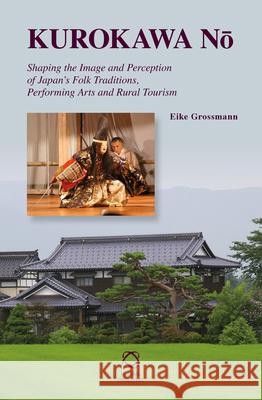Kurokawa Nō: Shaping the Image and Perception of Japan’s Folk Traditions, Performing Arts and Rural Tourism » książka
Kurokawa Nō: Shaping the Image and Perception of Japan’s Folk Traditions, Performing Arts and Rural Tourism
ISBN-13: 9789004223349 / Angielski / Twarda / 2013 / 298 str.
Kurokawa Nō: Shaping the Image and Perception of Japan’s Folk Traditions, Performing Arts and Rural Tourism
ISBN-13: 9789004223349 / Angielski / Twarda / 2013 / 298 str.
(netto: 582,77 VAT: 5%)
Najniższa cena z 30 dni: 610,47
ok. 22 dni roboczych.
Darmowa dostawa!
In the 1960s, Kurokawa's historic nō tradition, as theatre and festival, came under the spotlight of the Japanese public. Advertised as 'secret nō of the snow country' it soon became one of the most well-known and long-studied folk performing arts traditions. That a secluded village isolated by mountainous country around it should have developed and sustained a high cultural entertainment such as nō theatre and integrated it into Shinto shrine festivals, prompted considerable interest among folklore scholars, theatre researchers, politicians, and tourists alike. Even today Kurokawa nō continues to be regarded as an example of an earlier form of Japanese culture and folk tradition that essentially has been frozen in time over the course of many centuries. In this volume, the author provides a detailed record of the history and development of Kurokawa nō and the processes of its transmission over the generations. The author also examines its impact on the wider cultural life of Japan and its literary heritage, the travel industry, government policy and folklore traditions in Japan generally. In addition, Kurokawa Nō offers an invaluable, authentic case study in the wider context of notions of Japanese self-perception and self-representation.











